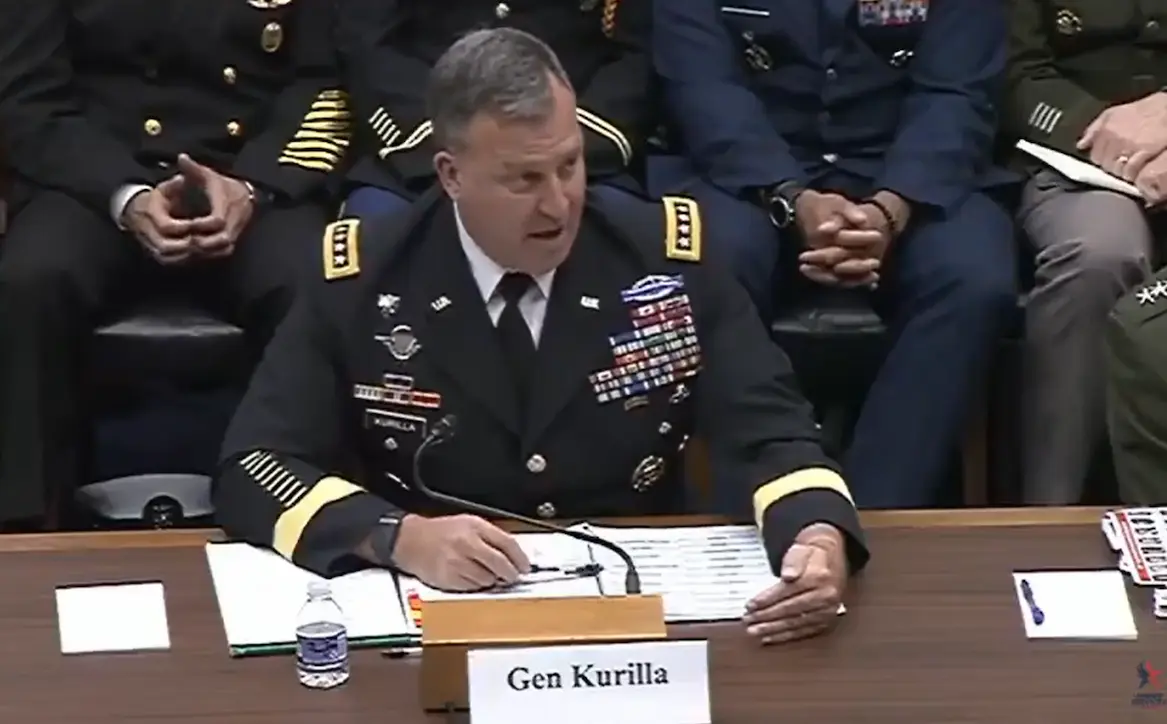
General Michael Kurilla, head of US Central Command, has praised Pakistan’s counter-terrorism efforts, specifically highlighting its role in capturing high-value ISIS-K members.
In a significant diplomatic statement, US General Kurilla, head of US Central Command (CENTCOM), has publicly praised Pakistan’s counter-terrorism efforts, specifically highlighting its role in capturing high-value ISIS-K members.
Speaking before the House Armed Services Committee, Kurilla emphasized the strategic importance of maintaining relationships with both Pakistan and India, stating that Washington must not view South Asia through a binary lens.
However, his remarks have sparked controversy, with critics questioning Pakistan’s broader security policies, particularly its handling of nationalist movements in Balochistan.
US-Pakistan Counter-Terrorism Cooperation
Kurilla’s testimony underscored Pakistan’s active role in countering ISIS-K, a terrorist faction operating from Afghanistan. He credited Pakistan’s military leadership, particularly Army Chief Asim Munir, for conducting dozens of operations along the Afghanistan-Pakistan border, leading to the capture of multiple high-value ISIS-K individuals.
Kurilla stated, “Pakistan has been a phenomenal partner in the counter-terrorism world. Through intelligence-sharing and joint operations, they have successfully disrupted ISIS-K networks.”
His remarks reflect Washington’s ongoing engagement with Pakistan, despite India’s diplomatic efforts to highlight Islamabad’s alleged support for cross-border terrorism.
India’s Response & Diplomatic Tensions
Kurilla’s comments come at a sensitive time for South Asia diplomacy, as India intensifies efforts to expose Pakistan’s alleged role in cross-border terrorism following the April 22 terror attack in Pahalgam.
India has repeatedly asserted that the victim (India) and the perpetrator (Pakistan) cannot be equated, expressing frustration over international narratives that appear to place both nations on the same footing.
External Affairs Minister S. Jaishankar recently reminded the global community that Osama bin Laden was given safe haven in Pakistan, reinforcing India’s stance that Islamabad remains a hub for terror networks.
Balochistan: The Unresolved Security Crisis
While Kurilla praised Pakistan’s counter-terrorism efforts, critics argue that Islamabad’s internal security policies remain deeply problematic.
In Balochistan, local leaders claim that Pakistan’s military uses the ISIS narrative to suppress nationalist movements, labeling activists as terrorists to justify crackdowns.
Human rights organizations have raised concerns over forced disappearances, extrajudicial killings, and military operations targeting Baloch activists, further complicating Pakistan’s counter-terrorism image.
Strategic Implications for US Foreign Policy
Kurilla’s remarks highlight Washington’s delicate balancing act in South Asia. While the US seeks strong ties with India, it also maintains security cooperation with Pakistan, particularly in counter-terrorism operations.
However, India’s growing frustration with Pakistan’s international positioning could strain US-India relations, especially as New Delhi pushes for greater global recognition of Pakistan’s alleged terror links.
Conclusion – US General Kurilla ublicly praised Pakistan’s counter-terrorism efforts
General Michael Kurilla’s praise for Pakistan’s counter-terrorism role has ignited debate, with India pushing back against the narrative and critics questioning Pakistan’s internal security policies.
As Washington navigates its South Asia strategy, the diplomatic tensions between India and Pakistan remain a critical factor in shaping regional stability.
Stay updated with the latest news on Rapido Updates. Keep yourself updated with The World, India News, Entertainment, Market, Gadgets, Sports, and many more
Also read- Understanding Prostate Health